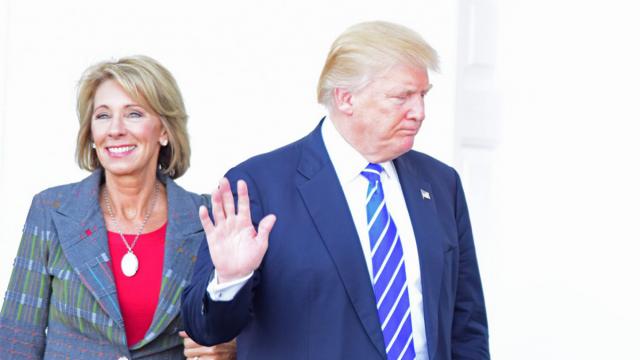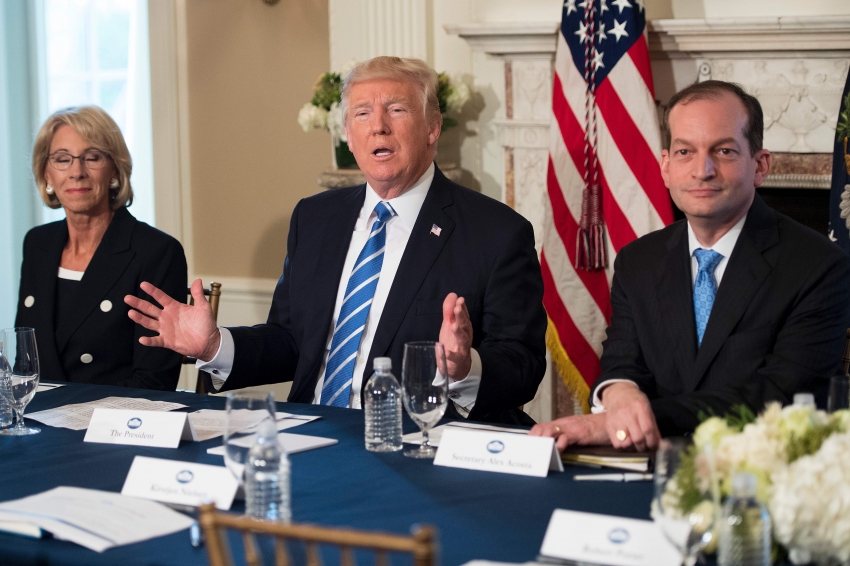
The Trump Administration’s recent budget proposal for 2020 includes cuts to the U.S. Department of Education while increasing funding to charter schools – a proposal that coincides with a recent report showing about $1 billion in federal funding for charter schools that are now closed, or never even opened in the first place.
The Network for Public Education released its “Asleep at the Wheel” report, which reviewed funding for charter schools and found a woeful lack of oversight. This led to hundreds of millions of dollars being awarded to schools that closed or never opened as a result of charter school mismanagement and fraud, while some schools set up barriers to children from disadvantaged groups or those with disabilities.
Charter schools are privately run entities that are required to operate like a traditional public school, but often the result is less public oversight of the charter’s operations. Some charter operators have sidestepped public oversight by claiming in court that they are exempt from laws pertaining to transparency of government entities because they are not themselves a government entity.
Charter schools are more often non-profit entities, although for-profit operations exist. Michael Milken, the notorious Wall Street “junk bond king” who made millions in the high-risk bond market in the 1980s before going to prison for financial crimes, had a $10 million stake in K12 Inc. This for-profit online company was a “virtual charter” operating schools online.
Subsequent audits found millions spent on advertising, high student-to-teacher ratio, and much lower scores for students in these schools than traditional public schools. Milken and fellow Wall Street investors made hundreds of millions of dollars in profit. With funding dollars tied to student enrollment, lower overhead costs resulted in windfall profits at the expense of taxpayers.
Even those charters designated not-for-profit can turn a hefty profit for its founders. In Arizona, Glenn Way founded American Leadership Academy in 2009. Since then, he has made around $37 million in real estate deals, courtesy of taxpayers. Put simply: Way’s finance company financed the construction of these public schools, selling or leasing the properties to ALA, which paid Way’s company with taxpayer funds.
In spite of this, the Trump Administration has proposed an increase of $60 million in funding for federal grants for charter schools. Trump’s Secretary of Education, Betsy Devos, has meanwhile called for more, not less charter schools. "Charter schools are great options for thousands of students, and the demand for more of them remains very high. We need more of them, not fewer, " DeVos said at a March congressional hearing.
The primary catch is this: Funding that goes to charter schools is taken away from traditional public schools. Often as a result the most economically disadvantaged students are relegated to traditional schools with greater demands but less resources. Trump’s 2020 proposed budget provides no increase for Title I funding, a program designed to help the most economically disadvantaged students, despite the fact that enrollment for K-12 education is expected to increase. For context, about one in five children today in the U.S. live in poverty.
Charter schools have been repeatedly accused of discriminating against lower income and special education students. According to the ACLU, about 20 percent of charter school operators in California discriminate based on test scores and grades, English language proficiency, admission interviews, and whether parents are willing to volunteer or donate to the school – all violations of state and federal laws. In March, Governor Gavin Newsom signed legislation requiring the state's charter schools adhere to the same standards of public disclosure as traditional public schools.
While states such as California have taken steps to bring greater oversight of charters, it isn’t a priority of the U.S. Department of Education. “Asleep at the Wheel” found that not only does the department not follow through on recommendations to improve oversight of charter school grants, but takes an active deregulatory approach.
As DeVos clearly stated: “This budget is about freedom… freedom from the top-down, ‘Washington knows best’ approach.”
The administration's proposed budget may not become a reality, but support for charter school funding has broad support from conservative lawmakers in Congress. By contrast, Democratic lawmakers, many of whom supported charter schools as a way to improve public education, are doing an about-face on oversight for funding, likely making the issue another battleground in Washington for 2020.

















